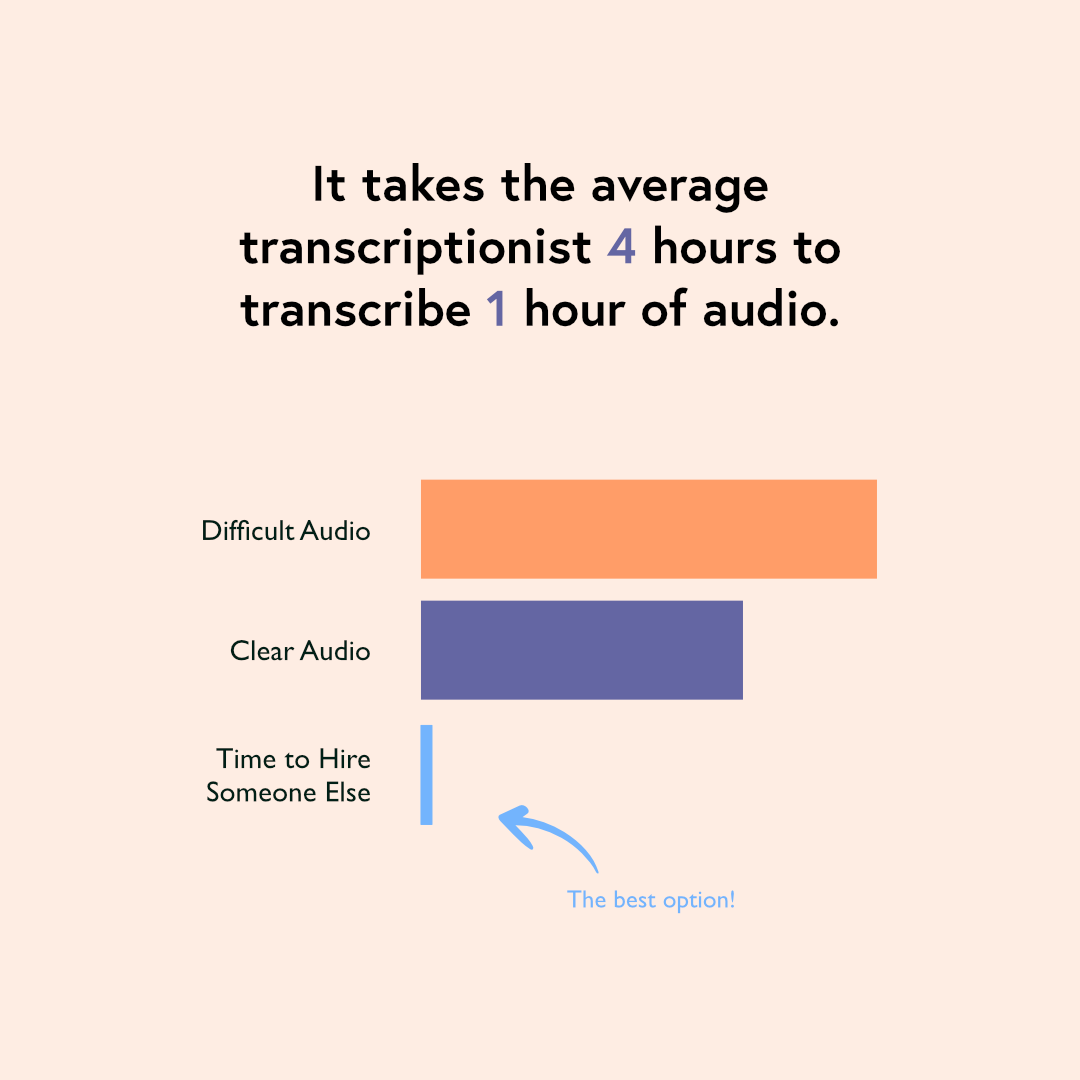If you record your audio and video for transcription or captioning purposes, it’s important to make sure that your audio is as clear as possible.
So, we recommend putting in a little extra effort when recording your audio or video. It will save you money and will help your preferred transcription company do a better job.
Here’s our top tips for how to avoid bad audio.
1. Invest in a high-quality recorder and microphone
Our biggest tip for making sure your audio is acceptable is to invest in the right equipment. This is a one-time cost that will save you money down the line by not having to pay for difficult audio add-on fees (which most high-quality transcription companies require).
For recorders, there’s lots of options on Amazon for under $50. Our clients recommend Sony devices, but you can shop around and find what suits you best. Tech Gear Lab lists the $40 EVISTR as the best bang for your buck option.
If you’re serious about good audio, make sure to get a microphone as well. These are usually best in controlled settings, like recording a podcast or a sermon. Tom’s Guide has a list of microphones that work best for podcasting.
Background noise
Low voices
Overlapping conversation
Heavy accents
Etc.
2. Use a backup recorder
Technology can be unreliable, so it’s important to always have a backup. Two recorders are better than one, but if you can’t afford a second one, using your phone is an acceptable backup depending on the setting.
Beyond using a second recorder as a backup, a second device can also be helpful to place in a different location to capture audio from multiple angles. This is just another step to ensure you get as much from your audio as you can.

“We work with companies and individuals in the legal, entertainment, market research, police, government, radio, church, and other fields to make their content easily accessible to all.”
3. Choose the correct setting
Choosing the correct space to record in is just as important as having the right equipment. When picking a recording space, make sure to pay attention to the size of the room, the acoustics, and if the microphone can be placed close enough to the speakers.
4. Do a quick test run
If possible, do a test run before the recording to see if there is any background noise being picked up, like a loud air conditioner or noisy people outside the room. This doesn’t have to be a lengthy test, but just long enough to work out any problems beforehand.
This will also allow you time to get used to your equipment and to make sure your devices are all in working order. Trust us, these are things you want to know before the recording starts!
Focus groups
Interviews
Conferences
Podcasts
Sermons
And much more!
5. Speak slowly
If you’re leading a group or interview, then you set the tone and pace for the recording. As such, it’s helpful for recordings if you talk slowly, clearly and loudly. This will make your transcripts much more accurate.
6. Stop side conversations
By far one of the biggest deterrents to transcript accuracy is background conversations being picked up in the audio. This can be not only between participants being interviewed, but also amongst crew and personnel who don’t realize their conversations are being heard.
So, if you hear a side conversation happening, try to gently put a stop to it as quickly as you can. Crosstalk if extremely difficult to transcribe, and it can ruin a transcript’s usefulness.

7. Use a professional transcription company
Even if you do everything “right”, transcription is still difficult. There are always going to be things you can’t control. So our best tip is to use a professional transcription company that is large enough to be able to provide accurate transcription, but small enough to speak with you personally about your project.
Experienced transcriptionists will be able to provide an accurate transcription with as few errors as possible. They know what to listen for, how to tweak recordings to hear better, and can format a transcript correctly. Your transcript should be grammatically correct, with no spelling errors.
HIGH-QUALITY TRANSCRIPTION



I liked how you wrote that investing in the right equipment ensured quality transcription. My friend needs legal transcription for their trial. I should advise him to look for a legal transcription service with positive reviews from clients.